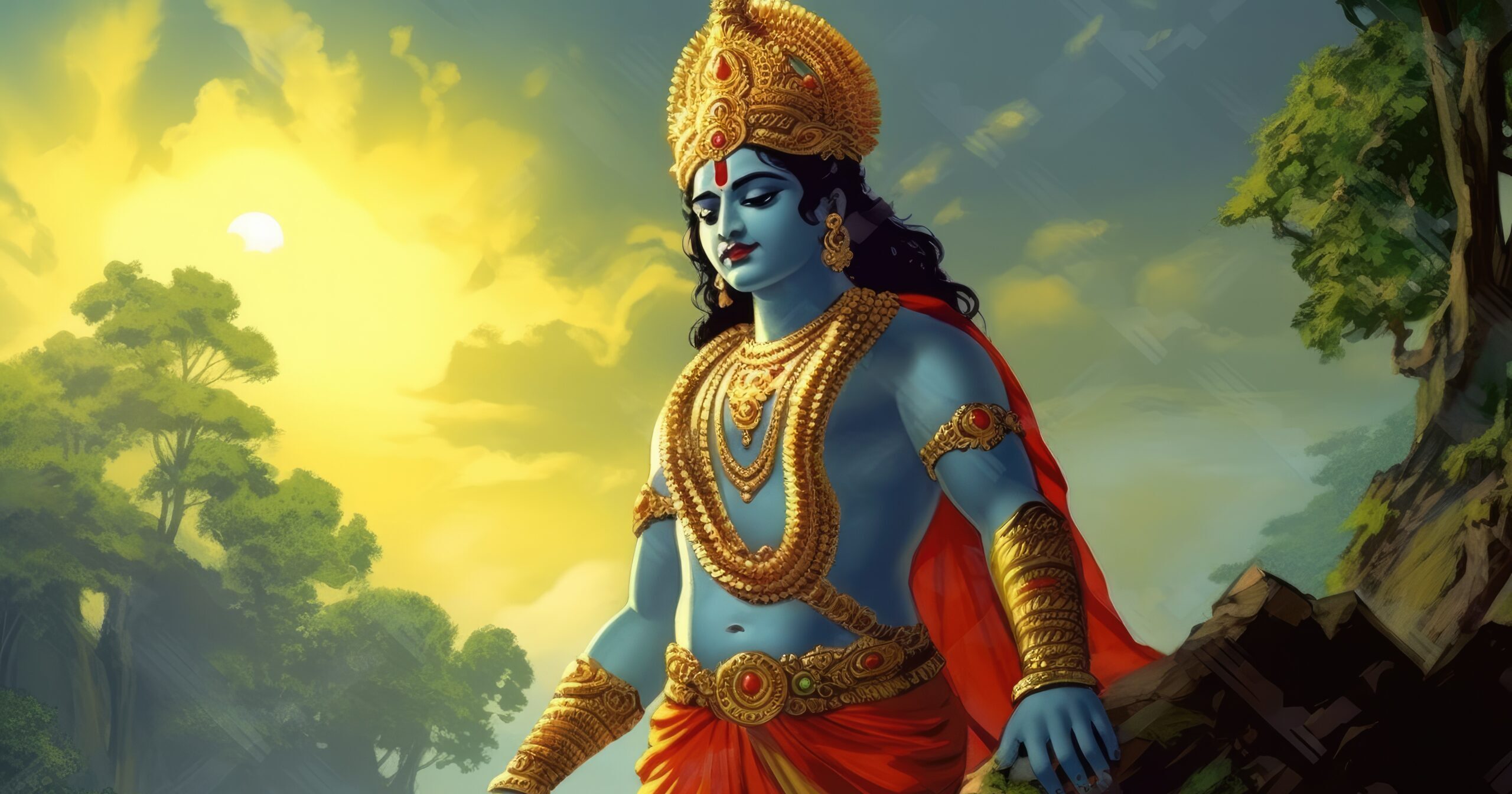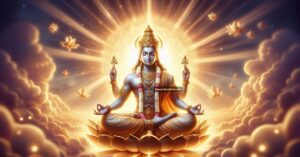Can women chant Vishnu Sahasranamam?
The melodious chanting of the Vishnu Sahasranamam, a stotra dedicated to Lord Vishnu, resonates deeply within the hearts of countless devotees. But a question often arises – can women chant the Vishnu Sahasranamam? The answer, like many aspects of Hinduism, is multifaceted. This article delves into the rich tradition, delving into authentic Shastras to explore this query and illuminate the transformative power of chanting the sacred names of Vishnu.
Vishnu Sahasranamam and its Power
धर्मार्थकाममोक्षाणाम् सर्वसिद्धिकरं परम्।
विष्णुसहस्रनाम स्तोत्रं श्रोतव्यं नित्यं हि सर्वदा।।
For attaining dharma, artha, kama, and moksha, the supreme bestower of all accomplishments is the Vishnu Sahasranama Stotra. It should be heard daily, always.
नारायणं स्तौति य इदं स्तोत्रं पुण्यं परमं जपेत्।
तस्य सर्वेऽर्थसिद्ध्यन्ति विष्णोः प्रसादात्परंतपः।।
One who chants this supremely holy stotra in praise of Narayana, all his desires are fulfilled by the grace of the supreme Lord Vishnu.
पापानि सर्वशमनानि चाप्यभीष्टदायकं च तत्।
विष्णुसहस्रनाम स्तोत्रं सर्वदुःखविनाशनम्।।
The Vishnu Sahasranama Stotra destroys all sins and grants desired objects. It is the destroyer of all miseries.
The Vishnu Sahasranamam, literally translating to “thousand names of Vishnu,” is a powerful hymn embedded within the Mahabharata, the epic Hindu scripture. It beautifully encapsulates Lord Vishnu’s divine attributes, each name revealing a facet of his cosmic power and benevolence. Chanting this sacred stotra can:
Bestow peace and prosperity: Vishnu, the preserver, is the source of all good things. Chanting his names invites these blessings into your life.
Purify the mind and soul: Each name acts as a mantra, a potent sound vibration that cleanses negativity and elevates consciousness.
Grant protection and overcome challenges: Vishnu’s names invoke his divine strength and guidance, helping you navigate life’s obstacles.
Deepen devotion and self-realization: Regularly chanting the Vishnu Sahasranamam fosters a deeper connection with the divine, leading to spiritual growth.
Naam Mantras: Chanting for Everyone
नाम रूपे व्यापकं सर्वं तत् तत् विष्णुर्महेश्वरः।
नामग्रहणाद् भवेत् पूजा स्तुतिर्मन्त्र जपात् ततः।।
Vishnu and Maheshwara pervade everything in name and form. Just by uttering the names, one performs puja, and chanting the mantra is like offering praise.
नाम चिन्तनं नामस्मरणं नाम जपं च जापतः।
सर्वान् कामानवाप्नोति लभते च परां गतिम् ।।
One who contemplates the name, remembers the name, and chants the name attains all desires and reaches the highest state.
तस्मात् सर्वेषु वेदेषु सर्वेषु च शास्त्रपुराणेषु।
नामस्मरणमेवास्य सर्वधर्मेषु चोत्तमम्।।
Therefore, among all the Vedas, Shastras, and Puranas, remembering the name is the best of all duties.
The concept of Naam Mantras is the adhaar of Hinduism. These names, known as Naam Mantras, are not mere words; they are potent vibrations that resonate with the universe’s very essence. Chanting Naam Mantras transcends rituals or restrictions – anyone, regardless of gender or background, can embrace this practice.
Many prominent Hindu spiritual traditions, like Bhakti Yoga, emphasize the importance of chanting Naam Mantras. The act of chanting itself becomes a meditation, connecting the devotee with the divine.
Question of Gender and Vishnu Sahasranamam
न जातिभेदो न कुलभेदो न स्त्रीपुंसयोर्भवेत्।
There is no difference based on caste, nor based on family lineage, nor between women and men. Where there is the state of oneness with the Self, there the yoginis and yogins are equal.
मन्त्रास्तपश्चरणानि च विद्या सर्वप्रकाराः।
न स्त्रीणां वर्जिताः कर्मणि समत्वं हि तत्र॥
Mantras, austerities, and all kinds of knowledge are not forbidden for women. In these actions, there is equality.
While the transformative power of Naam Simran extends to all, some traditional interpretations of shastras, primarily by certain Acharyas, discouraged women from chanting the Vishnu Sahasranamam. However, it’s important to understand the context of these interpretations.
Firstly, these restrictions might stem from specific rituals or practices reserved for men within a particular school of thought. Secondly, the interpretations may not reflect the overall spirit of the scriptures, which often emphasize the liberating and inclusive nature of devotion.
In modern times, the notion of gender barriers in spiritual practice is diminishing. Many scholars and spiritual leaders promote an inclusive approach, highlighting that the divine names of Vishnu are meant for anyone seeking spiritual growth. We see a growing number of women chanting the Vishnu Sahasranamam with devotion and reaping its benefits.
In fact, renowned singers like M.S. Subbulakshmi have popularized the chanting of the Vishnu Sahasranamam through their soulful renditions. This not only showcased the beauty of the stotra but also challenged traditional restrictions.
Ultimately, the decision to chant the Vishnu Sahasranamam is a personal one but anyone irrespective of gender can read, chant or recite.









Krishna Ashtakam